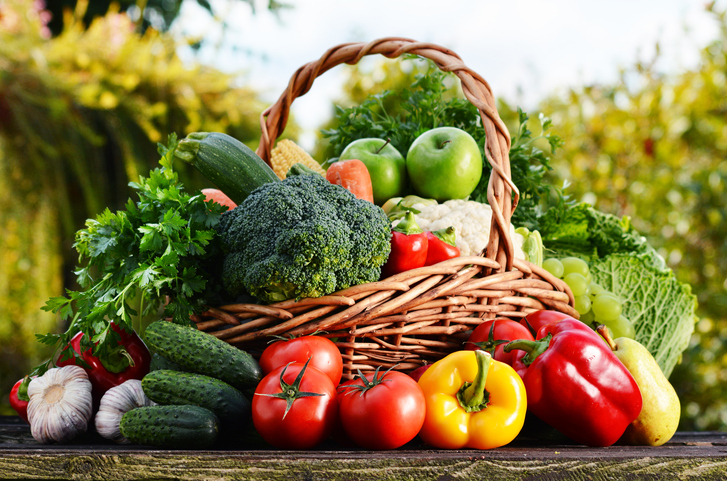Dietary Help For Inflammation
Symptoms of inflammation are connected to some serious health conditions but you can help yourself by paying attention to your hormone balance and diet.

Inflammation is a defence mechanism in the body. The immune system recognises damaged cells, irritants, and pathogens, and it begins the healing process.
It is the body’s attempt at self-protection to remove harmful stimuli and has emerged as a key factor in serious diseases, such as cardiovascular disease, cancer, Alzheimer’s, obesity, diabetes, and a variety of infectious diseases,
Inflammatory diseases include a vast array of disorders and conditions that are characterised by inflammation such as allergies, arthritis & gout, asthma, autoimmune diseases such as lupus, coeliac disease, hepatitis and inflammatory bowel disease.
It can also be seen in issues with your balance, muscle weakness, tiredness, insulin resistance and even diarrhoea.
How to help your body deal with inflammation
Our bodies are really clever, so when something harmful or irritating affects a part of our body, there is a biological response to try to remove it.
The signs and symptoms of inflammation can be uncomfortable but are showing that the body is trying to heal itself so here are some simple tips to maximise your health.
Keep it simple
Although no diet is proven to cure or treat inflammatory conditions, you can choose foods that will help with it.
Go for items that haven’t been highly processed as your body wants ones that are still close to their natural state.
You may not need to avoid nightshade vegetables
Tomatoes, white potatoes, peppers, and aubergine are sometimes called “nightshade” vegetables. Some people say they have less joint pain and inflammation when they stop eating nightshades, but research hasn’t shown this.
Take tomatoes, for example. They have lycopene and vitamin C that help curb inflammation.
Increase spices
Paprika adds flavour, colour, and health benefits to food. It contains capsaicin, an active component of chilli peppers, and is a natural pain and inflammation fighter.
Also found in red peppers and cayenne pepper in supplement form and other spices like ginger, turmeric, and garlic may offer similar health perks.
Increase fibre
In part, a fibre rich diet may help reduce inflammation by lowering body weight. High-fibre foods also feed beneficial bacteria living in the gut, which then release substances that promote lower levels of inflammation body-wide.
Foods like white rice and white bread don’t have much fibre so switch to whole grains or whole wheat and get increased nutrients and vitamins.
Lentils are also an excellent source of fibre, whatever colour they are, as are all forms of beans and peas.
Check your sugar intake
Research shows that the consumption of foods high in sugar can cause inflammation and most forms of joint pain and muscle aches involve inflammation.
So pain and other inflammatory symptoms may be exacerbated and prolonged by eating foods high in sugar, or just having a very high sugar intake from your diet generally.
The American Heart Association recommends that women eat no more than 25 grams of added sugars daily and it is not just in cakes, biscuits and sweets.
Have you checked how much is in your yoghurt, breakfast cereal, and particularly anything labelled fat-free such as salad dressing or tomato sauce as they will often include sweeteners or sugar?
Limit your saturated fat
Too much fat in red meat particularly can promote inflammation as can processed red meats like bacon and sausages.
Look for lean protein such as turkey, chicken, fish and vegetarian sources such as beans and tofu.
Good sources of fat include extra virgin olive oils as they have a natural chemical called oleocanthal, which shares similar properties with the anti-inflammatory drug ibuprofen.
Nuts, avocados, and olives are other good fats you can enjoy in moderation.
Increase fatty fish
It is so worthwhile on the inflammation front if you can eat at least two servings a week, and best are salmon, sardines, mackerel, and tuna.
Fatty fish are one of the best sources of omega-3’s, a type of fat that helps reduce inflammation throughout the body.
Cocoa can be good
It has flavonoids, which are nutrients that also may curb inflammation. To get cocoa in its best form, avoid it in highly sweetened, processed foods like biscuits or any chocolate with less than 80% coca solids.
Instead, add cocoa powder to smoothies or a mug of steamed milk.
Mushrooms
Mushrooms are rich in anti-inflammatory components, such as polysaccharides, phenolic and indolic compounds, mycosteroids, fatty acids, carotenoids, vitamins, and biometals.
Many vegetables are also good for inflammation such as spinach and kale, and fruit such as strawberries, blueberries, cherries, and oranges.
What can make inflammation worse?
These are the main culprits that can make your inflammation worse:
- Sugar and high-fructose corn syrup
- Artificial trans fats
- Vegetable and seed oils
- Refined carbohydrates
- Excessive alcohol
- Processed meat.
Helpful information:
Progesterone is known to have anti-inflammatory effects, particularly when combined with vitamin D.
Numerous studies show that vitamin D and progesterone work in synergy to “fight” abnormal or dangerously prolonged inflammation, especially in the brain, nervous system, and even the gut.
So ensuring you have good progesterone levels and a healthy anti inflammatory diet is a great start to tackling the issue.
The tips mentioned here will all help, and the website of Naturopathic Doctor Andrew Weil has an excellent ‘food pyramid’ guide to help with inflammation.


















